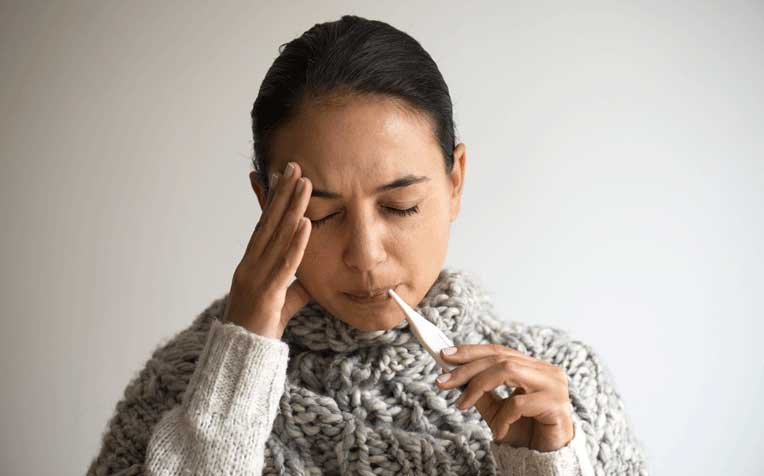
Chikungunya causes fever, headache, nausea, and fatigue.
Chikungunya fever - an additional threat from the Aedes mosquito.
Did you know that the Aedes mosquito that transmits dengue fever can also carry the virus that causes chikungunya fever? Although the disease is not endemic to Singapore, cases still crop up and Singaporeans travelling to places where chikungunya fever is endemic ought to be vigilant against mosquito bites.
According to the Ministry of Health’s Weekly Infectious Diseases Bulletin, Singapore had 378 cases of chikungunya fever infections in the first half of 2013 – up significantly from only nine cases for the same period last year. The infections are likely to have been imported from overseas with some local transmission.
“The steep rise in chikungunya fever in Singapore could be due to the prolonged hot weather and increase in mosquito breeding areas,” says Dr Limin Wijaya, Senior Consultant, Department of Infectious Diseases, Singapore General Hospital (SGH), a member of the SingHealth group.
Singaporeans also face the risk of catching the chikungunya virus when travelling to endemic areas, such as Africa, India, Sri Lanka, China and Taiwan.
Chikungunya fever is not life-threatening like severe dengue fever. But symptoms such as prolonged joint and muscle pain can be especially debilitating for the elderly, Dr Wijaya adds.
Symptoms of chikungunya fever
Symptoms usually appear three to seven days after the person has been bitten by an infected Aedes mosquito, specifically Aedes albopictus or Aedes aegypti. However, symptoms can also appear up to 12 days later. The illness may last for just two to three days or a few weeks. Symptoms include:
- Sudden onset of fever (40°C)
- Severe joint pain which can be prolonged
- Muscle pain
- Joint swelling
- Chills
- Nausea and vomiting
- Headaches
- Fatigue
- Rash (face, limbs and trunk)
How can you tell if it is dengue or chikungunya fever?
Although both types of fever share common symptoms, prolonged and severe joint pain and fatigue are characteristic of chikungunya fever and not typical of dengue fever.
Treatment of chikungunya fever
There is no vaccine or specific treatment for chikungunya fever. Symptoms will resolve over time. Any fever should subside within two to three days.
Doctors usually prescribe non-steroidal anti-inflammatory drugs (NSAIDs) such as ibuprofen and naproxen to relieve severe muscle and joint pain that can last several weeks or months. It is important to rest and drink lots of fluids.
Tips to prevent chikungunya fever
- Apply insect repellent on exposed skin and clothes when you go outdoors. DEET-containing synthetic repellents provide longer protection than plant-based repellents such as citronella oil, or lemon eucalyptus oil. Read the label and re-apply as directed.
- Use air conditioning or mosquito coils indoors to reduce mosquito bites.
- Stay indoors during the Aedes mosquito’s peak feeding times, typically early morning and late afternoon.
- When outdoors, wear long sleeves and pants to cover limbs.
- When travelling overseas, stay in accommodations that provides insecticide-treated mosquito nets over beds and mosquito screens for windows and doors.
- Prevent mosquito breeding by removing any standing water in flower pots, plant saucers, buckets and containers.
The SGH Travel Clinic is run by specialists from the Department of Infectious Diseases. It is a designated Yellow Fever Centre. The team of doctors and nurses will offer comprehensive travel advice and country-specific recommendations prior to your trip.
Ref: S13
Related Articles
Conditions & Treatments
Public Events
Get the Health Buddy App
© 2025 SingHealth Group. All Rights Reserved.

















 Get it on Google Play
Get it on Google Play